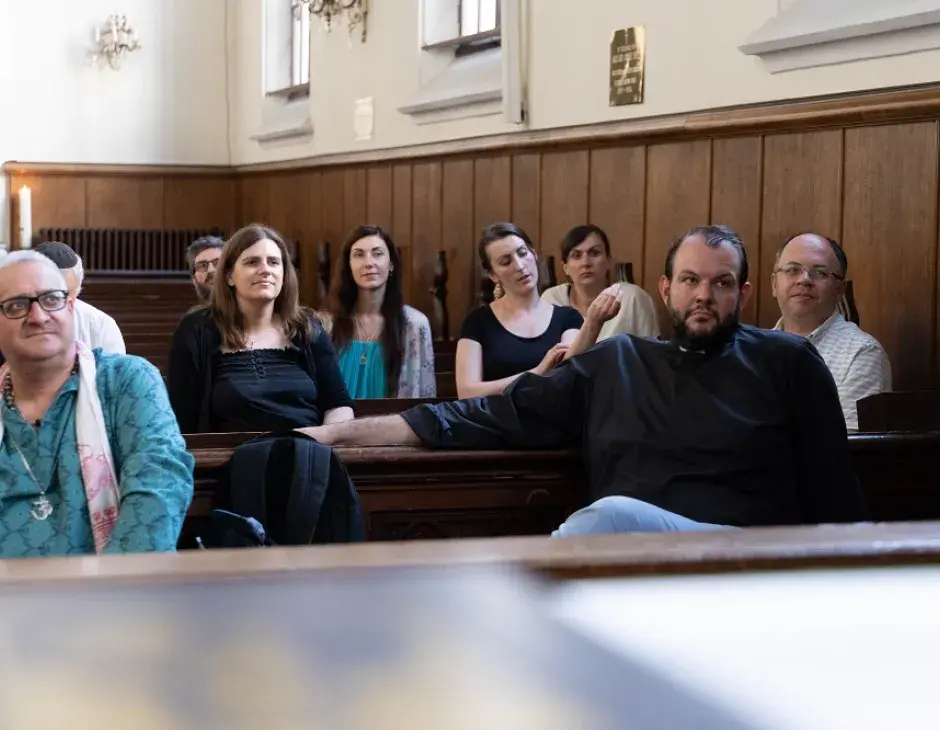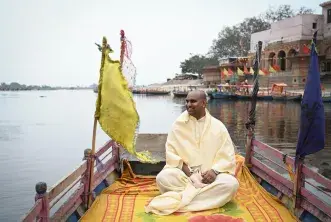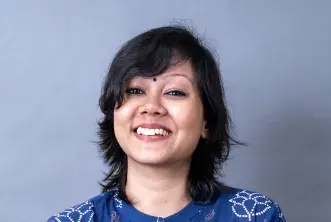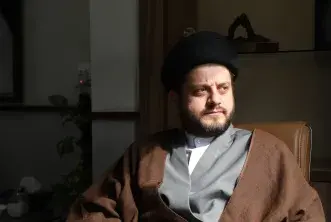Europe Fellows Meet in Person for Training on Dialogue, Peacebuilding, and Social Cohesion
Last week, the 2021 cohort of KAICIID European Fellows undertook their second series of training sessions at the Centre’s headquarters in Vienna, Austria and online. During the seven day gathering, the Fellows received advanced dialogue coaching, visited religious sites, and made preparations for their own interreligious dialogue projects.
This year’s cohort features 20 religious leaders, teachers, and practitioners from 13 European countries. Among the group are representatives of Buddhism, Christianity, Hinduism, Islam and Judaism. Last week’s session is the first time the cohort has met in person, with previous training opportunities conducted virtually due to the COVID-19 pandemic.
Split across sixteen training sessions, the Fellows received tuition on the core principles of interreligious dialogue, perceptions and misperceptions of dialogue, different models for intercultural communication, the importance of policy engagement, the role of religious leaders in peacebuilding, and the role of dialogue to promote the right to freedom of religion and belief. Each session was led by an expert in the field of interreligious dialogue.
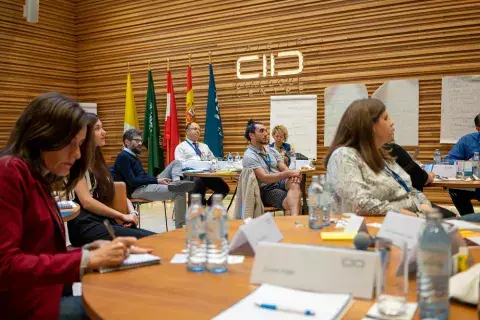
The Fellows also had the opportunity to visit three different places of worship: the Islamic Centre of Vienna, Christ Church Vienna, and the Stadttempel, one of the city’s synagogues. These trips allowed the participants to bond with one another, developing an appreciation for the pedagogical importance of visiting religious sites, and discussing the values and areas of commonality between their various faiths.
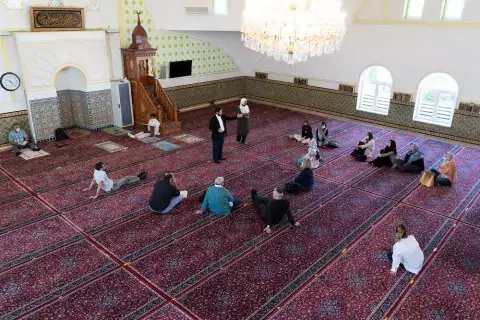
“[Last week’s training sessions were an] opportunity to meet people who I would have otherwise not met, representatives of different religious communities and representatives from other organizations,” said Arijana Aganovic, a human rights professional from Bosnia. “I was able to broaden my network of people who work in the field of interreligious dialogue and religious rights.”
In a session focused on how identity and perception affect intercultural relations, the Fellows were taught about the roots of prejudice and discrimination, and offered practical advice on how to foster mutual understanding. This involves learning to listen, being cognizant of one’s own assumptions, suspending judgement and bias when meeting new people, and questioning the consequences of behaviour.
The Fellows were also instructed on the importance of safe spaces — physical, emotional, cognitive, cultural, and spiritual — and how best to create them. With these skills, the participants are better equipped to facilitate interactions between people from different faith and cultural traditions.
“[The training] helped me to understand the role that religious identity plays to people, that it is actually important to use religion as a positive tool, to increase understanding, and that religion can behave as an umbrella that can motivate people to be more committed to human and universal values in society,” said Skender Brucai, one of the Fellows and a religious academic at University College Beder in Albania.
Having completed their second round of training sessions — the first was held in a series of virtual sessions earlier this year — participants of the European Fellows Programme will take their newly developed skills in dialogue facilitation, intercultural communication, and social cohesion promotion back to their home countries.
There, they will use this expertise to implement initiatives that tackle real world interreligious challenges facing local communities. Past Fellows’ schemes have included interfaith youth projects, interreligious and intercultural dialogue coaching for young leaders, hate speech awareness campaigns, and events designed to empower women in the policy making arena.
“I will try to inform my community first, then try to approach the local authorities, provide my learning experience and express the use of dialogue between the different religious groups,” said Pandit Juan Carlos Chellaram from Spain, reflecting on the value of what he had learnt over the last week.
“Now I have the endorsement from the KAICIID Fellows Programme which is considered a very prestigious programme and organisation. This is now a presentation card for me,” he added.
In the coming weeks, the Fellows will finalise their initiative proposals and begin the process of project implementation. This can take several months and is supported by small financial grants from KAICIID. At the end of the year, once the various schemes are up and running, the Fellows will graduate from the programme.

